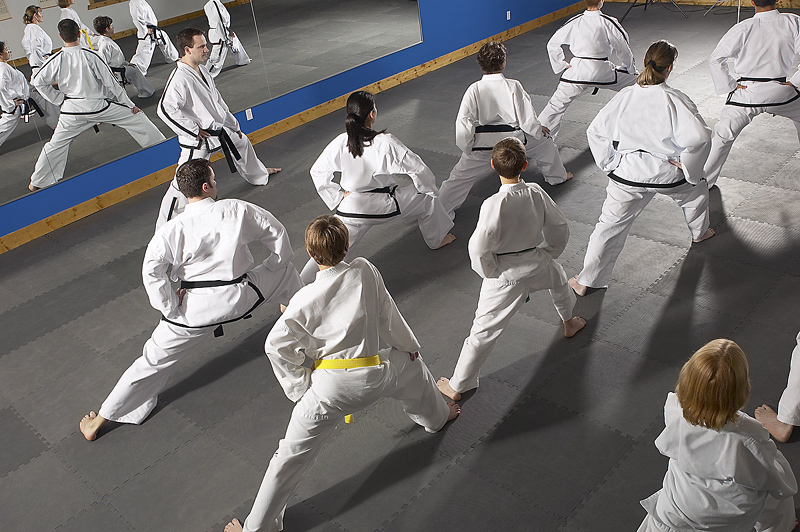
THURSDAY, Dec. 31 (HealthDay News) — Forget about walking around the park with your pooch.
Boot camps designed for people and their pets are fast becoming popular choices for busy owners looking for a one-stop fitness program.
During the 60-minute classes, campers are put through a series of high-intensity moves, focusing on strength, balance and cardiovascular challenges, as well as dog obedience drills.
At Leash Your Fitness in San Diego, personal trainer Dawn Celapino usually leads a pack of nine clients during her outdoor sessions held in and around the city.
“Most of the people showing up for class work all day and feel guilty leaving their dog again while they go to the gym, or the weekend comes and they just want to spend time with their dogs,” she explained.
The circuit-style camp is timed so people can work at their own pace, said Celapino, adding: “I literally have 11-year-olds and 80-year-olds in the same class.”
Nancy Kelly joined Leash Your Fitness earlier this year, after relocating from New York, as a way to meet people and stay in shape.
“It’s so much more fun than just taking my dog for a walk down the street,” she said.
Kelly and her yellow Labrador retriever, Montana, religiously attend twice a week; on the other days she runs or goes to the gym.
The rigorous training has paid off. Since April, Kelly, 49, has dropped a jean size and Montana has shed eight pounds.
“It really has added to my workout regimen,” she said.
Regular exercise keeps both people and pets healthier by managing weight, enhancing energy and combating chronic disease, experts say.
Adults need 2.5 hours of aerobic activity weekly, and two or more days a week of muscle-strengthening work for improved health, according to the U.S. Department of Health’s 2008 Physical Activity Guidelines for Americans.
Pets need regular workouts, too. Veterinarians suggest that adult dogs engage in 20 to 30 minutes of heart-pumping exercise daily.
For some people, getting fit is made easier by teaming up with a furry workout partner.
Jacqueline Epping, of the Division of Nutrition, Physical Activity and Obesity at the U.S. Centers for Disease Control and Prevention, said people who care about their dog’s well-being are more willing to engage in physical activities with them.
“There is evidence to support [the theory that] dogs motivate some people to get active and stay active,” Epping said.
But doggie boot camps do more than just focus on fitness. Enlistees also get the added bonus of obedience training for a better-behaved pet.
“By stimulating [dogs’] minds and their bodies at the same time, they’re 20 times more tired than just an average walk,” according to dog trainer Jill Bowers, who started Thank Dog! Bootcamp last year with her twin sister, Jamie.
And a tired dog is a happy dog. Veterinarians at Tufts University’s Animal Behavior Clinic say aerobic exercise stimulates the brain to make serotonin, a mood-stabilizing chemical that produces feelings of contentment and helps dogs, especially those who are anxious or aggressive, to relax.
At Thank Dog! Bootcamp, both a certified personal trainer and dog trainer lead clients in the hour-long class, held five days a week, barking out orders like drill sergeants.
The outdoor classes attract a lot of onlookers. “It’s very visually stimulating,” explained Bowers. “Imagine 15 to 20 people all telling their dogs to sit at the same time, and all the dogs doing it.”
If owners can’t participate, their dogs still can through the “Borrow Me” program, where a “cadet” takes them through the program. Pooches are also available for loan if you want to attend but don’t own a dog.
Camps are offered in several California cities, including Santa Monica, San Francisco and Costa Mesa. Strong interest in the camp from around the country has the sisters thinking about franchising.
Bowers — who got the idea for the business after losing 40 pounds at a fitness boot camp — says teaming up with a dog makes exercising feel less like work, and more like fun.
“We’ve had people with us for nine months now,” she says. “They renew every month so they use it like a gym membership.”
More information
For more on human/dog fitness, go to the Research Center for Human-Animal Interaction at the University of Missouri College of Veterinary Medicine.

